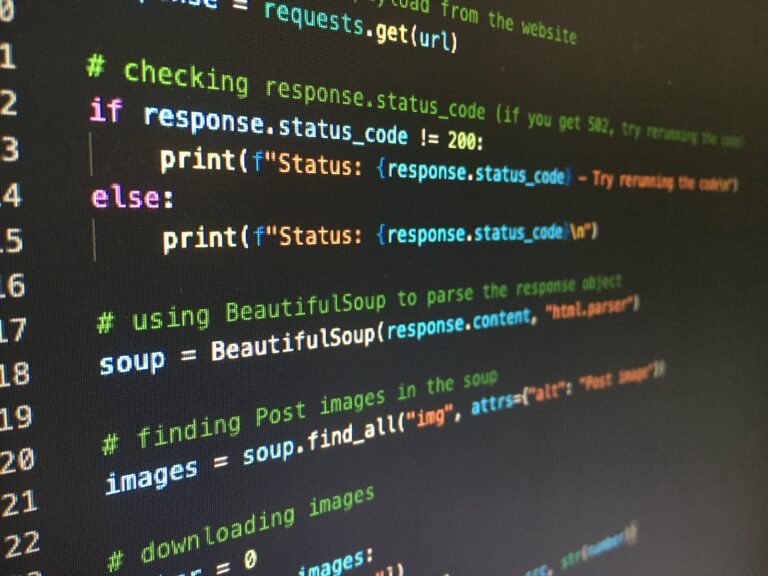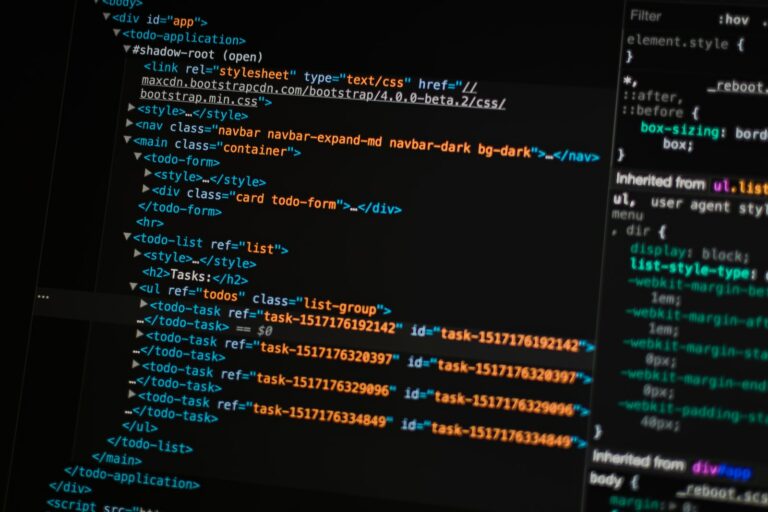Python programming has become increasingly popular over the years, and for good reason. It is a high-level and versatile language with a wide range of applications, from web development to data analysis. One of the key features of Python that sets it apart from other programming languages is its use of modules and packages.
In this article, we will explore the basics of Python modules and packages, their benefits, and popular examples.
Key Takeaways:
- Python modules and packages are essential tools for Python programming.
- Modules are files containing Python definitions and statements, while packages are directories containing modules.
- Using modules and packages can improve code organization, reduce redundancy, and simplify development.
Understanding Python Modules
Python modules are a crucial aspect of Python programming. They allow you to organize your code into reusable and sharable parts, improving the efficiency of your Python scripting and development. Python modules group related pieces of code together, making it easier to keep your code organized and maintainable.
What are Python modules?
A Python module is a file containing Python definitions and statements. Functions, classes, and variables defined in one module can be accessed from other modules using the ‘import’ statement.
Python modules can be used to perform a wide variety of tasks. For example, you can use modules to:
- Perform mathematical calculations
- Interact with a database
- Generate random numbers
- Develop web applications
- Retrieve data from external sources
How to use Python modules
In order to use a Python module, you must first import it into your Python script. You can import modules in several ways:
- Use the ‘import’ statement to import the entire module
- Use the ‘from’ keyword to import specific functions or classes from a module
- Use the ‘as’ keyword to create an alias for a module, function, or class
Once you have imported a module, you can access its functions, classes, and variables using dot notation. For example, if you import the ‘math’ module, you can access its ‘sqrt’ function using ‘math.sqrt()’
Python modules are an essential aspect of Python programming. By using modules, you can organize your code into reusable and sharable parts, making your Python development and coding more efficient and streamlined.
Exploring Python Packages
Python packages enable users to organize modules and subpackages into a single hierarchy, making it easier to work with large codebases. Packages are directories that include an __init__.py file and can contain other modules and subpackages. In this section, we’ll explore the key components of Python packages and how to use them in your code.
Components of a Python Package
A Python package is made up of several components:
- __init__.py: This file is executed when the package is imported and can contain initialization code or subpackage imports.
- Modules: These are Python scripts containing functions, classes, and variables that can be reused across your codebase.
- Subpackages: These are nested packages that contain their own modules and subpackages.
To use a package in your code, you can import it using the import statement. You can import the entire package or specific modules or functions within the package.
Working with Python Packages
Let’s take a look at an example of how to use a Python package:
import pandas as pd
data = pd.read_csv(‘data.csv’)
In this example, we’re importing the pandas package and using the read_csv() function to read data from a CSV file. The as pd syntax is used to create an alias for the package, making it easier to call functions from within the package.
You can also create your own Python packages by creating a directory with an __init__.py file and adding modules and subpackages. This can help you organize your code and make it easier to share with others.
Benefits of Python Packages
Python packages provide several benefits for developers, including:
- Organization: Packages enable you to organize your code into logical groupings, making it easier to navigate and maintain.
- Reusability: Packages can contain reusable modules and functions that can be used across multiple projects.
- Sharing: Packages can be easily shared with others, making it easier to collaborate on projects.
Overall, Python packages are a powerful tool for organizing and managing complex codebases. By taking advantage of packages in your own code, you can improve your development workflow and create more robust applications.
Advantages of Python Modules and Packages
Python programming language offers many benefits when it comes to writing modular code. The modular approach to coding involves breaking down a program into smaller, more manageable modules or packages. These modules and packages offer several advantages to Python developers and software engineers.
Improved Code Reusability
One of the significant advantages of Python modules and packages is their improved code reusability. Individual modules can be reused in other programs without having to rewrite the code. This feature saves time and effort for developers, making it easier to update and maintain the code.
Better Code Maintenance
Python modules and packages make it easier to maintain code. When writing code in modules, each module can be updated separately without affecting the rest of the program. This feature makes debugging and troubleshooting easier and more efficient.
Enhanced Code Readability and Organization
Python modules and packages make code more readable and organized. Breaking code into logical modules and packages helps to improve readability, making it easier for developers to understand and work with the code. It also makes it easier to organize code by functionality, making it more maintainable over time.
Increased Collaboration
The use of modules and packages in Python programming encourages collaboration between developers. When a module is created, it can be shared with others, facilitating teamwork, and promoting code sharing and reuse.
Overall, Python modules and packages provide a powerful set of tools for software development. Their use can enhance code reusability, maintenance, readability, organization, and collaboration, making them an indispensable part of any Python developer’s toolkit.
Exploring Popular Python Modules and Packages
Python modules and packages have become an integral part of the Python programming language. These powerful tools can help streamline development, improve functionality, and accelerate coding.
Below are some popular Python modules and packages that can help you get the most out of your Python software:
Numpy
| Description | Usage |
|---|---|
| A library for working with arrays, matrices, and mathematical functions. | Numpy is commonly used in scientific computing and data analysis. |
Pandas
| Description | Usage |
|---|---|
| A library for data manipulation and analysis. | Pandas is a popular choice for data science projects and can be used for data cleaning, wrangling, and visualization. |
Beautiful Soup
| Description | Usage |
|---|---|
| A web scraping library for extracting data from HTML and XML files. | Beautiful Soup is commonly used for data mining and automated data extraction. |
Other popular Python modules and packages include:
- Requests: A library for making HTTP requests.
- Matplotlib: A library for data visualization.
- Scikit-learn: A library for machine learning and data mining.
- TensorFlow: An open-source platform for building machine learning models.
With the help of these powerful modules and packages, Python developers can improve their coding efficiency, streamline their development workflows, and create powerful software applications.
Conclusion
In conclusion, Python modules and packages are essential tools for Python programming, scripting, and development. Modules are single-file collections of Python code that can be imported and used in other programs, while packages are collections of related modules that can be installed and used as dependencies in other projects.
Using Python modules and packages can save developers time by allowing them to reuse existing code instead of writing everything from scratch. They also provide a way to modularize code, making it easier to manage and maintain in larger projects.
When exploring Python modules and packages, it’s important to keep in mind the specific needs of your project. There are many popular Python modules and packages available, such as NumPy for scientific computing, Django for web development, and Twisted for networking, among many others.
Choose Wisely
Choose the modules and packages that best fit your project’s needs, and don’t be afraid to experiment with different options. With the wealth of resources available online, it’s easier than ever to find the right tools for your Python development needs.
Python is a versatile language that can be used for a wide range of applications, and its modules and packages are a key factor in its success. By understanding and effectively utilizing these tools, developers can improve their productivity and create even more powerful and efficient software.







